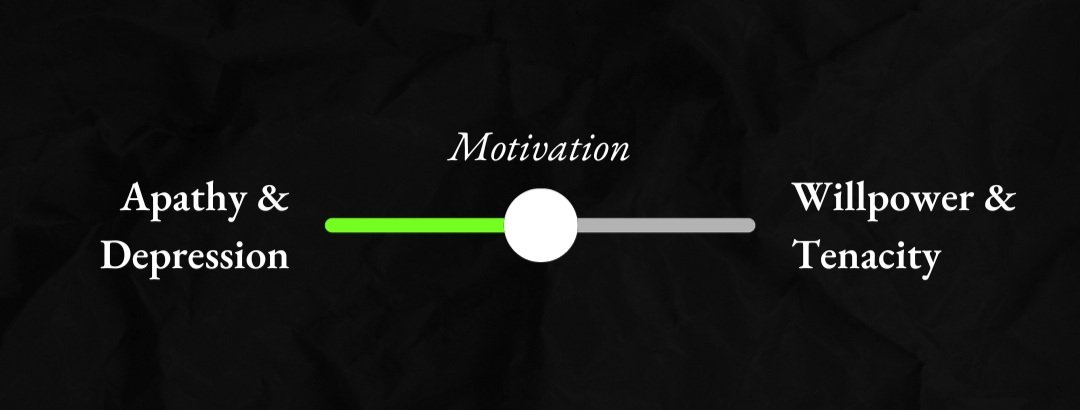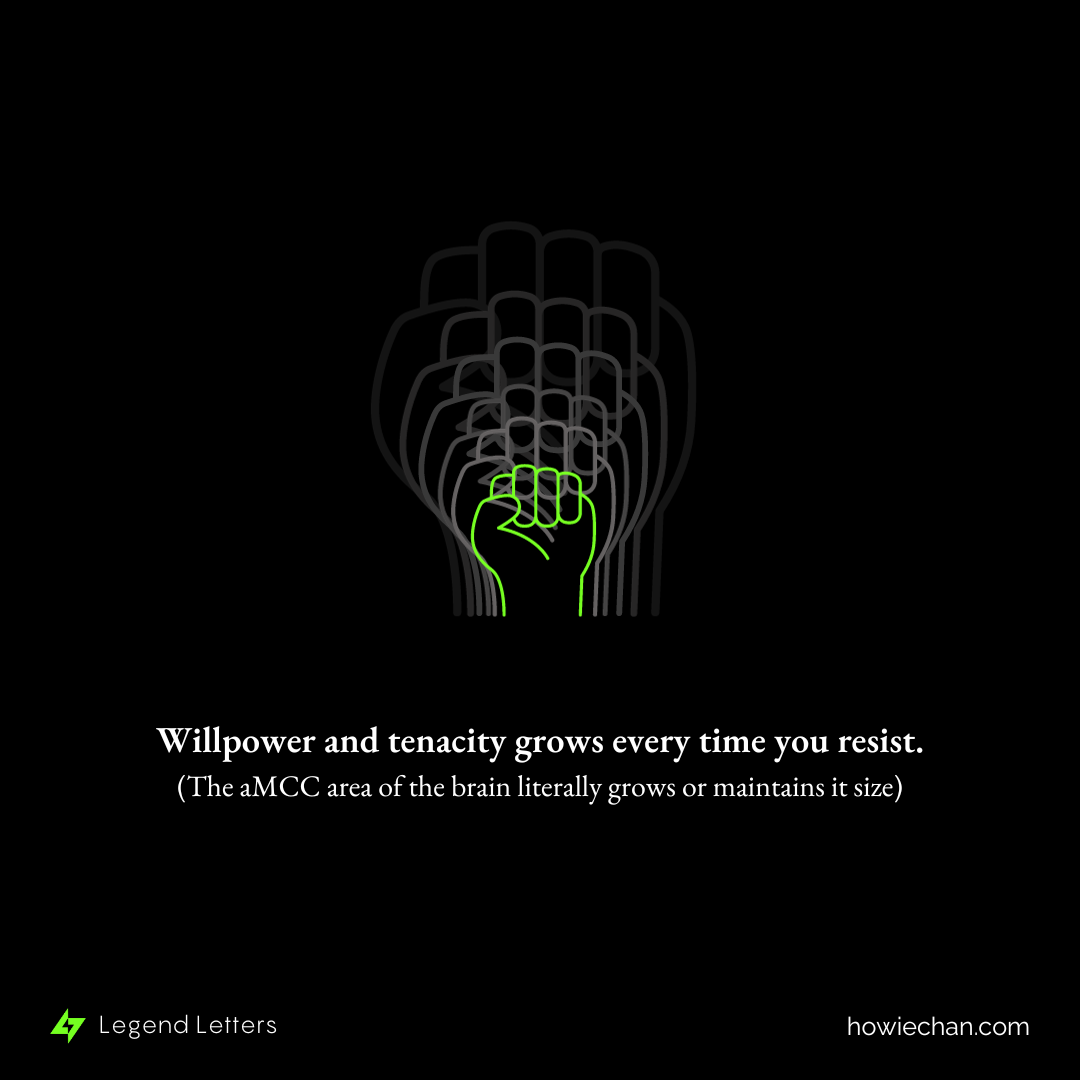I've been thinking a lot about this quote lately:
"The treasure you seek is in the work you are avoiding"
~Jim Kwik
What treasures do I seek?
What work or task am I avoiding?
How can I get better at avoiding it less?
The first two questions you need to answer for yourself, but in this letter, I can answer the last.
By enhancing your tenacity and willpower.
Tenacity is the willingness to persist under pressure and resistance of different kinds.
Willpower is control exerted to do certain things and to resist certain things.
They are close relatives.
Andrew Huberman, Assistant Professor of Neurobiology and Ophthalmology at the Stanford School of Medicine, describes tenacity and willpower as existing at one end of a continuum with apathy and depression at the other end.
The increase and decrease in motivation is what moves us up and down this continuum.

Multiple neuroscience research studies are showing that there is actually a single area in our brains responsible for tenacity and willpower.
Introducing the anterior midcingulate cortex (aMCC).

Modified image from FlintRehab.com
Research shows a positive correlation between willpower and tenacity and the volume and activation levels of the aMCC:
Neuroimaging of participants engaging in hard tasks show elevated activity of the aMCC when compared with those performing easy tasks.
Students with high academic performance have higher resting activity levels in their aMCC as compared with others.
Individuals who have lesions in the aMCC area have increased levels of apathy and depression with lowered tenacity and willpower.
Successful dieters have higher levels of aMCC activity whereas failed dieters and people with obesity have diminished levels.
'Super-agers' - people who are 60 years and older who have cognition levels of people in their 40s, 30s, and even mid-20s show a maintenance of their aMCC volume as opposed to 'normal-agers' where it decreases over time.
Electrical stimulation of the aMCC resulted in participants feeling some sort of psychological pressure and an urge to push back and successfully overcome it "feels like a storm is coming, and confident coming out on the other side"
All the research up to this point shows that there is ONE neural mechanism for willpower and tenacity - and it lies in the aMCC.
And why does this matter?
This area of the brain is highly subject to plasticity, meaning it can change over time.
You can literally grow your willpower and tenacity...
BASE PRINCIPLE
When expected to react - slow down, when expected to respond - speed up.

WHAT IF?
What if you could have more willpower and tenacity? What if resisting temptation or resisting reluctance can make you more able to resist the next time? What if you could be 60 and older but think like you're 40, 30 or even mid 20s?
Here is what you can do to enhance or maintain the volume and activity levels of your aMCC as shown by research:
1/ Engage in cardiovascular exercise
Zone three (70-80% of your maximum heart rate) at 60 min for three times a week is shown to increase aMCC volume in individuals 60 years and older.
2/ Add micro-sucks to your work
Whether it's physical exercise or just resisting something you want to do like check your phone during dinner, adding more resistance or 'micro-sucks' (Huberman) will help enhance willpower and tenacity.
3/ Participate in challenges that don't end
The commonality between 'superagers' is that they continue to take on challenges where there is no finite endpoint, for example learning to play the violin or learn a new language. The prerequisite is that the work needs to suck.
4/ Receive random rewards
Reinforce the practice of doing hard things (resisting doing something you want to do or doing something you don't want to do) by giving yourself random rewards. Random is key so you aren't developing an unnecessary habit.
In order to get to the treasure, we need to embrace the work we don't want to do and resist the temptation to do the things that don't make us better.
“Doing the difficult things that you've never done awakens the talents you never knew you had.”
~ Robin S. Sharma
Go hunt down what you've been avoiding and invite those legendary moments into your life. Build this region of the brain and become unstoppable.
Live your legend 🤘🏽,

Howie Chan
Creator of Legend Letters
Sources:
Touroutoglou, Alexandra et. al., The Tenacious Brain: How the Anterior Mid-Cingulate Contributes to Achieving Goals, October 9, 2019 - LINK
Huberman, Andrew, How to Increase Your Willpower & Tenacity, Huberman Lab Podcast, YouTube - LINK
Parvizi, Josef, The Will to Persevere Induced by Electrical Simulation of the Human Cingulate Gyrus, Neuron, December 5, 2013 - LINK
Colcombe, Stanley et. al., Aerobic Exercise Training Increases Brain Volume in Aging Humans, The Journals of Gerontology, November 1, 2006 - LINK
Scholl, Jacqueline et. al., The Good, the Bad, and the Irrelevant: Neural Mechanisms of Learning Real and Hypothetical Rewards and Effort, Journal of Neuroscience, August 12, 2015 - LINK
Two More Ways I can Help You:
1/ Strategy Hour
Book a 1:1 call with me and we can talk about brand strategy, self-mastery and/or LinkedIn growth (I grew from 7K to 29K followers in 2.5 months).
2/ Personal Brand Clarity Program
Three 1:1 coaching sessions to get clarity on your story and your brand so you can attract what and whom you want into your life.
